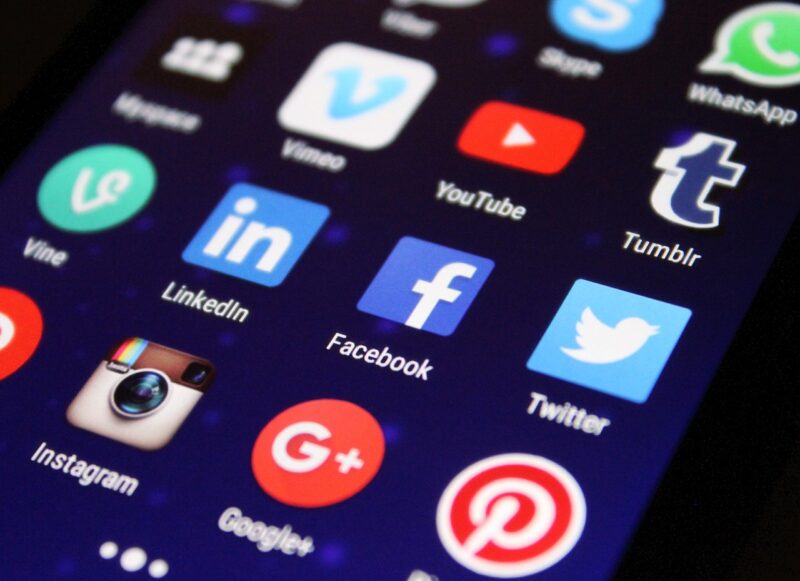The Social Media Shift: How Platforms Shaped Modern Relationships
November 18, 2024

Social media has revolutionized the way we connect, communicate, and relate to one another. From Facebook to Instagram, and from Twitter to TikTok, these platforms have not only changed the dynamics of our interactions but have also redefined modern relationships in astonishingly multifaceted ways. In this article, we will explore how social media has influenced friendship, romance, and family bonds, ultimately shaping the modern social landscape.
1. The Rise of Online Connectivity
The digital age has made it easier than ever to connect with people across the globe. Social media platforms have emerged as the modern meeting grounds for individuals seeking connection, support, and community. This interconnectedness has its pros and cons, presenting us with opportunities for new friendships but also potential pitfalls such as superficial connections.
The statistics are staggering: as of October 2023, around 4.9 billion people are using social media globally. This widespread usage has led to an increase in cross-cultural interactions, opening doors to new relationships that might not have been possible before the existence of these platforms.
However, the nature of these connections is often debated. Are our online friendships ‘real,’ or are they merely a reflection of numbers rather than genuine interactions? The answer lies in the quality of engagement, and how we choose to nurture these virtual bonds.
2. Social Media and Friendship Dynamics
Friendships have evolved in response to social media’s dominance; people no longer rely solely on face-to-face encounters to maintain their relationships. Platforms like Facebook and Instagram allow friends to share moments of their lives, creating a semblance of presence even when miles apart.
Yet, the quality of these friendships often raises the question: are we more connected or more isolated? Many report feelings of loneliness despite having hundreds of online friends. Here are some ways social media influences friendship dynamics:
- 1. Convenience: Social media allows us to stay in touch with friends across great distances, fostering communication through instant messages, comments, and likes. This immediacy can help solidify bonds that might otherwise fade due to time and distance.
- 2. Networking Opportunities: Many people use social media to meet new friends based on shared interests or hobbies, forming communities that might not exist in their offline lives.
- 3. Superficiality vs. Depth: While social media facilitates communication, it can sometimes lead to superficial relationships, where likes and shares replace deeper, meaningful conversations. The balance between maintaining numerous connections without depth is a challenge many face.
- 4. FOMO (Fear of Missing Out): Seeing friends’ posts about outings or events can sometimes lead to feelings of inadequacy or loneliness, influencing individuals’ self-esteem and satisfaction in their own relationships.
The evolution of friendships in the digital age underscores the importance of purposeful engagement. While social media facilitates connections, the quality and depth of interactions remain crucial for sustaining lasting friendships.
3. The Impact on Romantic Relationships
Dating and romantic relationships have been forever changed by social media platforms. Apps like Tinder, Bumble, and OkCupid allow individuals to meet potential partners with unprecedented accessibility. However, the digital space has introduced new complexities that affect how we form romantic relationships.
Some of the key influences include:
- 1. Access to Options: Online dating provides a vast array of potential partners, allowing individuals to explore compatibility factors and quickly sift through options. However, this abundance can lead to decision fatigue, often causing individuals to remain in a constant state of seeking rather than settling down.
- 2. Virtual Dating Norms: Social media has shifted the landscape of dating by normalizing virtual interactions. Video calls and social media stalking have become prevalent as couples navigate the waters of attraction and understanding each other’s social media presence before meeting face to face.
- 3. Social Media Jealousy: Emotions regarding social media presence can create issues in dating, as partners may feel insecure or jealous regarding online interactions. How partners engage online now plays a significant role in relationship dynamics and trust levels.
- 4. Transparency and Oversharing: The lines between private and public life have become blurred, with many couples feeling pressure to share their relationship statuses or personal details with a public audience, potentially leading to vulnerabilities and social expectations that can complicate the relationship dynamic.
In adapting to these changes, couples need to navigate these influences deliberately, establishing boundaries and understanding the implications of their social media interactions on their romantic lives.
4. Family Dynamics in the Age of Social Media
Social media has also altered family relationships, with parents, children, and extended family members frequently using platforms to connect. This can foster family bonding but can also lead to friction.
Here are key ways social media influences family dynamics:
- 1. Shared Experiences: Families can share life milestones and daily moments instantly, fostering a sense of togetherness even when physically apart. This constant sharing reinforces family bonds, especially among geographically dispersed families.
- 2. Oversharing and Privacy Concerns: What is appropriate to share? The question of privacy is central when family members share their lives online. Younger generations may feel comfortable oversharing, while older family members may prefer to maintain boundaries, leading to potential conflicts.
- 3. Monitoring and Trust Issues: For parents, the challenge of monitoring children’s online behaviors is complex. Trust may be questioned, causing rifts if parents attempt to regulate their children’s social media use in a controlling manner.
- 4. Intergenerational Communication: The rise of social media has created a platform where different generations can learn from each other. Grandparents can communicate with grandchildren in new, exciting ways, often using platforms like Facebook to connect over shared interests or hobbies.
Balancing these dynamics is crucial for maintaining healthy family relationships in the social media age, ensuring that communication flourishes while respecting boundaries and privacy.
5. The Dark Side of Social Media Relationships
While social media can enrich relationships, it also comes with significant downsides, including:
- 1. Cyberbullying and Harassment: Social media can be a breeding ground for negative behaviors, where individuals may be targeted for harassment or bullying, affecting self-esteem and mental health.
- 2. Comparison Culture: The tendency to compare one’s life to curated portions of others’ lives can lead to feelings of inadequacy and strain on relationships.
- 3. Addiction and Overuse: The addictive nature of social media can detract from in-person interactions, leading to relationship strain as individuals become absorbed in their online worlds.
- 4. Miscommunication: Unlike face-to-face conversations, messages can be easily misinterpreted online, leading to conflict or misunderstandings, which can harm relationships.
Recognizing these potential issues is vital for developing healthy relationships in a digital context. Maintaining awareness and intentionality can help mitigate these risks.
6. Conclusion: Navigating the New Relationship Landscape
The overarching influence of social media on modern relationships is clear and complex. While it provides platforms for connection and community, it also introduces challenges that demand our attention. To navigate this new landscape, we must cultivate meaningful interactions, set healthy boundaries, and recognize the impact of digital engagement on our authentic relationships.
Ultimately, the quality of our connections in the age of social media will depend on the choices we make in how we engage with others. Embracing a balanced and mindful approach can ensure that we harness the benefits of social media, enriching our relationships rather than detracting from them.






